Collecting tolls on highways invested by the State will help reduce pressure on the budget and create investment sources for other routes, but people will have to pay many types of fees.
In the draft Road Law currently being consulted, the Ministry of Transport proposes to collect fees for using state-invested highways based on the number of kilometers a vehicle travels on the road. The Ministry analyzes that if fees are not collected, it will be difficult to make a breakthrough in developing transport infrastructure. If the State does not attract resources from the private sector, it will be difficult to ensure the goal of having 5,000 km of highways in the next 7 years. It is estimated that in the next 10 years, the budget will need to invest 239,000 billion VND to build new highways.
Disagreeing with the above proposal, Mr. Ngo Tri Long, former Director of the Institute for Price Market Research, analyzed that the budget for building highways comes from people's contributions in taxes, fees and charges. Currently, when cars are in circulation, car owners must pay road maintenance fees, and collecting highway fees will cause overlapping fees. In the context of economic difficulties, collecting fees is even more difficult for businesses and people.
"The government uses tax money to build roads, and now continues to collect highway tolls, which is unreasonable," Mr. Long said, adding that if there is a lack of resources to maintain roads and invest in new highways, it is necessary to review whether the budget is being used effectively. The transport sector needs a mechanism to attract investment in highways through socialization, instead of using the budget.
Transport expert Nguyen Van Thanh also said that collecting tolls on state-invested highways is "double toll collection" because people have already paid taxes and road maintenance fees. "The Ministry of Transport's statement that collecting tolls is to have a source of investment for other highways and road maintenance is not convincing enough. If there is no source of investment, plans such as having 5,000 km of highways should not be made," Mr. Thanh said.
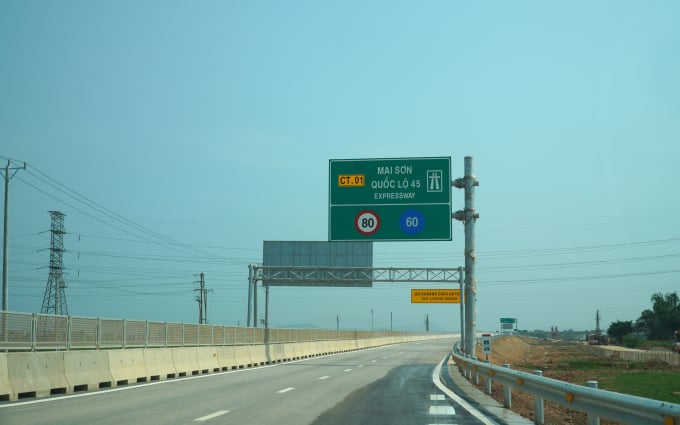
Mai Son - National Highway 45 Expressway has been completed but toll collection has not yet been done. Photo: Le Hoang
Contrary to the above viewpoint, Associate Professor Dr. Tran Chung, Chairman of the Vietnam Road Traffic Construction Investors Association, said that expressways are special-grade traffic works with good quality, shortening travel time for vehicles, so they cannot be compared with national highways and local roads. People have to pay when using good quality services and the State ensures that there is a parallel national highway without paying a fee.
According to Mr. Tran Chung, in order for the highway to operate safely and sustainably, maintenance work needs to be carried out regularly, and it is necessary to control oversized and overloaded vehicles. Currently, the road maintenance fund only meets 30-40% of the maintenance needs of national and local roads, so it is not possible to maintain and operate the highway. Collecting highway tolls invested by the State is necessary to have resources for road maintenance.
Dr. Phan Le Binh, a traffic planning expert, also commented that the State budget is currently tight, having to spend on many activities and often in deficit. Meanwhile, investing in highways requires a large budget. Collecting tolls from highways will help reduce pressure on the budget.
People can choose to use the highway or not. For example, from Hanoi to Hai Phong, those who do not want to pay the fee will take Highway 5, which takes more time and is in a mixed traffic flow, with a higher risk of accidents. On the contrary, those who are willing to pay the fee will use the Hanoi - Hai Phong highway to save time and reduce the risk of accidents. "Customers who consider time as money will be willing to pay the fee to use the highway. The need for the State to collect fees and the need for customers to save time meet," said Mr. Binh.
From the fact that the Ho Chi Minh City - Trung Luong Expressway stopped collecting tolls after recovering capital, Mr. Binh said that with key routes with high traffic volume like this one, it is necessary to continue collecting tolls to have a source for maintenance, ensure the quality of road services and supplement the State budget.
Looking at the world, Mr. Binh said that in the US, there are toll lanes on free highways, the intention is that the beneficiaries have to pay the toll. In Japan and South Korea, the government uses toll revenue from high-traffic routes to invest in building low-traffic routes, shortening travel time and narrowing the gap between regions.
Before drafting the Road Law, the Ministry of Transport had repeatedly proposed to collect tolls on some expressways invested by the State. In early May, the Ministry planned to collect tolls on 9 expressways, including: Ho Chi Minh City - Trung Luong; Cao Bo - Mai Son, Mai Son - National Highway 45, National Highway 45 - Nghi Son, Nghi Son - Dien Chau, Cam Lo - La Son, Vinh Hao - Phan Thiet, Phan Thiet - Dau Giay, My Thuan 2 Bridge. The estimated toll is 1,000-1,500 VND/km/vehicle with less than 12 seats and is estimated to be able to collect more than 2,000 billion VND in the budget each year.
Source link






![[Photo] Hanoi morning of October 1: Prolonged flooding, people wade to work](https://vphoto.vietnam.vn/thumb/1200x675/vietnam/resource/IMAGE/2025/10/1/189be28938e3493fa26b2938efa2059e)

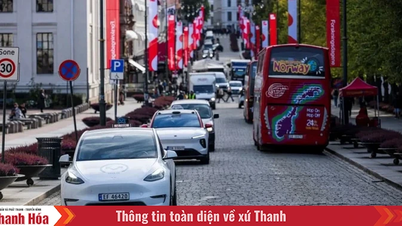

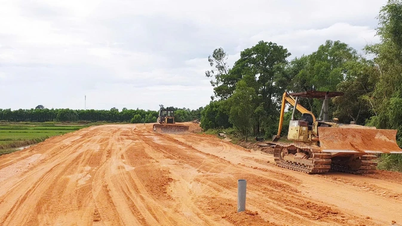





























![[Photo] Panorama of the cable-stayed bridge, the final bottleneck of the Ben Luc-Long Thanh expressway](https://vphoto.vietnam.vn/thumb/1200x675/vietnam/resource/IMAGE/2025/9/30/391fdf21025541d6b2f092e49a17243f)

































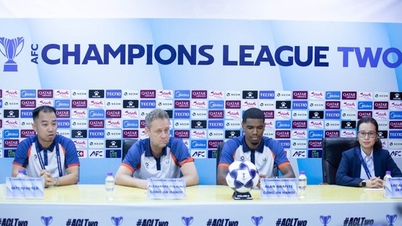




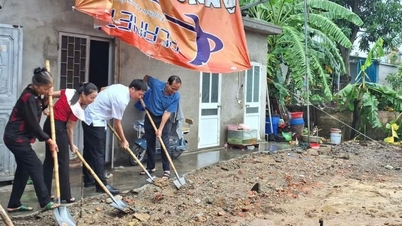

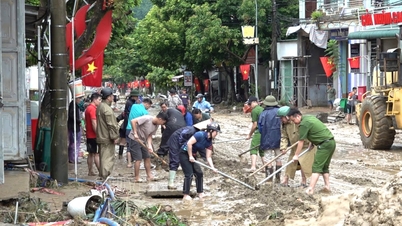



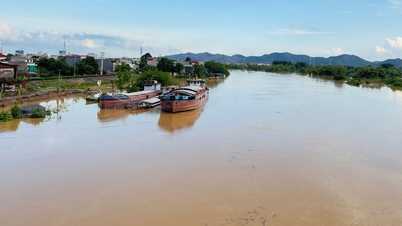















Comment (0)